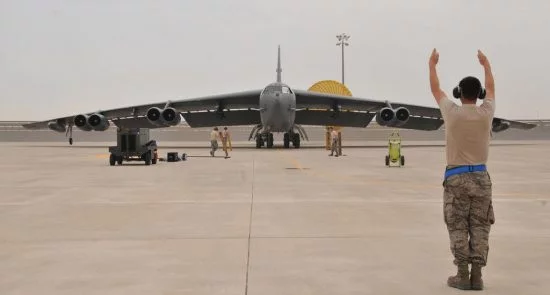Asia October 1, 2019
Short Link:The US Moves its Qatar Base to South Carolina Says it is ‘Sitting Duck’ for Iran
The problem for the US is that its Middle Eastern central command base is in Doha, Qatar. That’s well within range of Iran’s ability to strike. So the Americans are practicing running their operations from South Carolina, where it’s safer.
Ariana News Agency-
Recent Iranian success at striking military and civilian infrastructure targets in the Persian Gulf region have led the American military to practice switching operational control of military operations from bases located within range of Iranian missiles to bases in the United States that are out of harm’s way.
US Central Command, which controls US forces in most of the Middle East and Central Asia, traditionally splits its headquarters and operations between a logistical and administrative base in Tampa, Florida, and its daily combat operations from a facility outside the Qatari capital of Doha.
On any given day in the region, as many as 300 US warplanes are conducting operations in Iraq, Syria, Afghanistan and over allied bases in the Persian Gulf. These flights are usually controlled by a large regional command center at Al Udeid Air Base in the Qatari desert, but this weekend, as detailed in the Washington Post, command and control was temporarily switched to a never-before-used facility in South Carolina over the course of Saturday.
The current schedule plans for the facility to take full command of operations one day per month for now with an expansion to 8 hours a day in the future, according to officials who spoke with the Washington Post. This would allow the new facilities to prepare for the possibility of taking over many operations normally conducted by Al Udeid in the case of a regional war with Iran.
A NATO military attache assigned to the region confirmed the switch over, which US officials said was designed to practice moving key command and control operations out of range of Iranians cruise missiles in the Gulf region, as pushed by last month’s strike by an estimated 20 cruise missile on what was considered a heavily guarded oil facility in Saudi Arabia.
“Iran being able to hit the oil facilities without being seen or intercepted reinforced what has always been a concern: The Americans have a huge amount of military capability in the gulf, but the command and control of that capability is a sitting duck for the Iranians in the case of a regional conflict,” said the NATO officer who does not have permission from NATO or their government to discuss the matter with the press.










